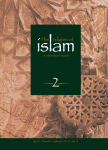The Religion Of Islam vol.2

Chapter X - Adultery
Adultery or Fornication
Moslem jurists recommend that an eyewitness in a case of this sort should satisfy the court of the truth of the charge by proving what he saw with his own eyes. If he fails to satisfy the court, he is liable to punishment with eighty stripes. Therefore, it is that the task of becoming a witness is onerous under the Islamic Law. The object is to discourage such charges, which may arise from suspicion, wrong notion, jealousy or other similar causes and which, even if true, have an effect that is not likely to prove healthy on society. Adultery is either committed with an unmarried or a married person. In the former case the punishment is not so severe, but in the latter the punishment is stoning the guilty to death.
A husband may slay his wife, if he finds her with her lover in the act of sexual union. In other cases, an alleged act of adultery, if brought forward by any person, must be proved by four witnesses, whose statement should not differ or appear doubtful. If the charge is proved in accordance with the injunctions of the law, the punishment for fornication (or an unmarried person) is one hundred stripes, inflicted on a man while standing, and on a woman while sitting. At present the punishment for adultery or fornication is relaxed in Muslim countries, especially in those occupied or influenced by foreign powers. The following is an English translation of the text in the Koran relating to adultery:
“As to the adulterer and the adulteress, scourge each one of them (with a hundred stripes) and let not pity for them detain you in the matter .. and let a party of believers witness their chastisement” ([1])
Punishment For Slander
In the case of slander, one who accuses a woman of adultery must produce the evidence of four witnesses, who must clearly state the crime or else the slanderer himself is to be punished, as enjoined upon him by the Koran:
“And those who accuse free women and cannot bring four witnesses, flog them with eighty stripes, and do not admit any evidence from them ever” (XXIV – 4)
“And as for those whose accuse their wives and have no witnesses except themselves, the evidence of one of these should be taken four times, bearing God to witness that he (the husband) most surely says the truth” (2) “And the fifth (time) that the curse of God be on him if he told lies” (XXIV – 6-7) ( 3) .
“And the fifth (time) that the wrath of God be on her if he said the truth” (XXIV – 8-9).
“And it shall avert the chastisement from her (the wife) if she testifies four times, bearing Allah to witness, that he is most surely a lair.”
[1])) Chastity, as a virtue, is not given the first place in modern civilized society, and hence, while fornication is not a criminal offence, even adultery is not considered as sufficiently serious one to subject the guilty party to any punishment except the payment of damages to the injured husband. This, indeed, is a very low view of sexual morality. Materialism has taken such a strong hold of the civilized mind that even chastity, the most precious jewel in a woman’s crown of virtue, can be compensated by a few pounds. Hence the Islamic Law seems to be too severe to an easy-going Westerner. The breach of the greatest trust which can be imposed in a man or a woman, the breach which ruins families and destroys household peace, is not looked upon except as the breach of a trust of a few pounds.
(2) This is an effectual restraint against slander and gossip, which so often bring disaster upon the heads of innocent women. Unless there is the clearest evidence of adultery against a woman–the evidence of four witnesses – the slanderer himself is to be punished.
(3) The ordinance relates to the case of husbands who accuse their wives of adultery and have no evidence. In such a case a divorce is effected the husband not being punishable for the accusation, though he cannot produce witness, and the wife not being punishable for adultery if she denies the charge in the manner stated.
